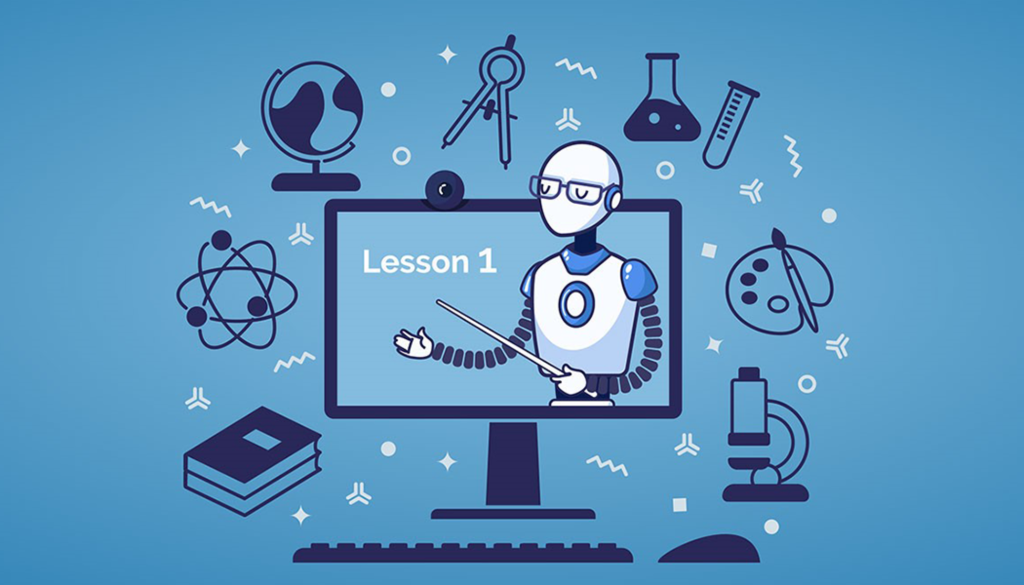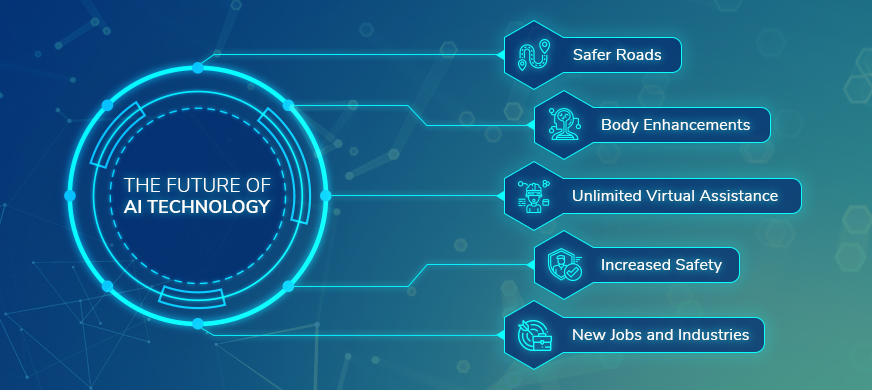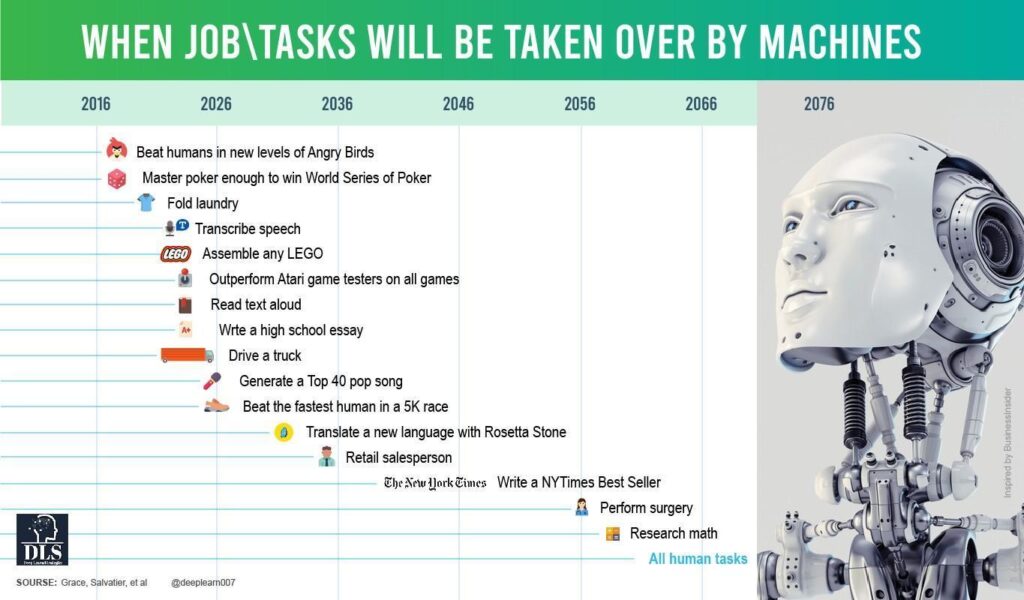Artificial Intelligence (AI) is revolutionizing the way we learn and acquire new skills. AI-powered technologies are providing more personalized and efficient learning experiences, making it easier for people to acquire knowledge and skills quickly. In this blog, we’ll explore how AI is transforming the learning experience and how it can help individuals, educators, and organizations.

Personalized learning: AI-powered technologies can personalize learning experiences based on an individual’s learning style, pace, and preferences. For example, an AI-powered platform can analyze the learner’s behavior and adjust the learning process accordingly, making it more effective and engaging.
Predictive learning: AI algorithms can analyze the learner’s data to predict the learning outcomes and guide learners to the appropriate learning path. Predictive learning helps learners stay on track and achieve their goals.
Gamification: AI can gamify the learning experience, making it more engaging and interactive. AI-powered technologies can provide learners with personalized feedback and rewards, encouraging them to learn more and retain information better.
Automated assessment: AI-powered technologies can automate the assessment process, making it more efficient and accurate. Automated assessments can provide learners with immediate feedback and help educators to identify areas where learners need improvement.
Chatbots: AI-powered chatbots can provide learners with 24/7 support and guidance, making learning more accessible and convenient. Chatbots can answer learners’ questions, provide recommendations, and even facilitate peer-to-peer interactions.
Adaptive learning: AI algorithms can adapt to the learner’s progress and make real-time adjustments to the learning path. This helps learners stay engaged and motivated, and ensures they are making progress towards their goals.
Personalized recommendation: AI algorithms can analyze the learner’s behavior and provide personalized recommendations for learning content and resources. This helps learners discover new information and skills that are relevant to their needs and interests.
Interactive multimedia content: AI can enhance the learning experience by providing learners with interactive multimedia content, such as videos, animations, and simulations. This makes learning more engaging and memorable, and helps learners retain information better.
AI-powered technologies are also providing new opportunities for educators and organizations to enhance the learning experience. For example, AI can help educators to personalize the learning experience for each student, analyze student performance data, and improve the effectiveness of their teaching methods.
Organizations can also use AI to train employees more efficiently and effectively, reducing the costs and time associated with traditional training methods. AI can also help organizations to identify the skills that their employees need to acquire and provide them with personalized training and development programs.
AI is transforming the learning experience by providing more personalized, efficient, and engaging ways to acquire knowledge and skills. AI-powered technologies are making it easier for individuals, educators, and organizations to enhance the learning experience and achieve their goals. The future of learning looks bright with AI, and we can expect to see more innovation and growth in this area in the coming years.
Artificial Intelligence (AI) has rapidly evolved from being just a science fiction concept to a mainstream technology that is transforming the way we live and work. AI has the potential to revolutionize a wide range of industries, from healthcare to finance and beyond. In this blog, we will explore the future of AI and how it is likely to shape our lives in the coming years.

One of the key areas that AI is expected to impact in the future is job automation. As AI becomes more advanced and sophisticated, it is likely that many tasks and jobs that are currently performed by humans will become automated. This will have a profound impact on the job market, with many workers losing their jobs to machines and new types of jobs emerging. However, it is also important to note that AI is expected to create new job opportunities in areas such as data analysis, AI development and cybersecurity.
Another major impact of AI is expected to be on healthcare. AI has the potential to revolutionize healthcare by enabling doctors to make faster and more accurate diagnoses, while also helping to reduce healthcare costs. For example, AI algorithms can be trained to analyze medical images, such as X-rays or MRI scans, and identify potential health issues that may not be immediately visible to the human eye. Additionally, AI can also be used to analyze large amounts of patient data to help doctors make more informed decisions about treatment options.
In addition to healthcare, AI is also expected to have a major impact on finance and banking. AI algorithms can be trained to analyze financial data and make predictions about stock prices, helping investors make better decisions about where to invest their money. AI can also be used to identify and prevent fraud, making banking systems more secure and reducing the risk of financial loss.

Another important area where AI is expected to have a significant impact is transportation. AI-powered autonomous vehicles are already being tested on roads and highways, and it is likely that these vehicles will become increasingly common in the future. AI-powered vehicles have the potential to make roads safer, reduce traffic congestion and improve fuel efficiency, making transportation more sustainable.
AI is also expected to play a major role in education. AI algorithms can be trained to personalize learning experiences for individual students, tailoring lessons and content to their unique needs and abilities. This can help to improve student outcomes and make learning more engaging and effective. AI can also be used to automate administrative tasks, such as grading assignments, freeing up teachers to focus on more important tasks.
AI is expected to have a major impact on the environment. AI algorithms can be used to monitor and analyze environmental data, such as air and water quality, and help to identify and solve environmental problems. Additionally, AI can be used to optimize energy use, making buildings and cities more energy-efficient and reducing the impact of climate change.
The future of AI is bright and holds the potential to revolutionize many areas of our lives. From job automation to healthcare, finance and education, AI has the potential to improve our lives in countless ways. However, it is important to approach the development of AI with caution and ensure that it is used in a responsible and ethical way. By doing so, we can ensure that the future of AI is one that benefits us all.
